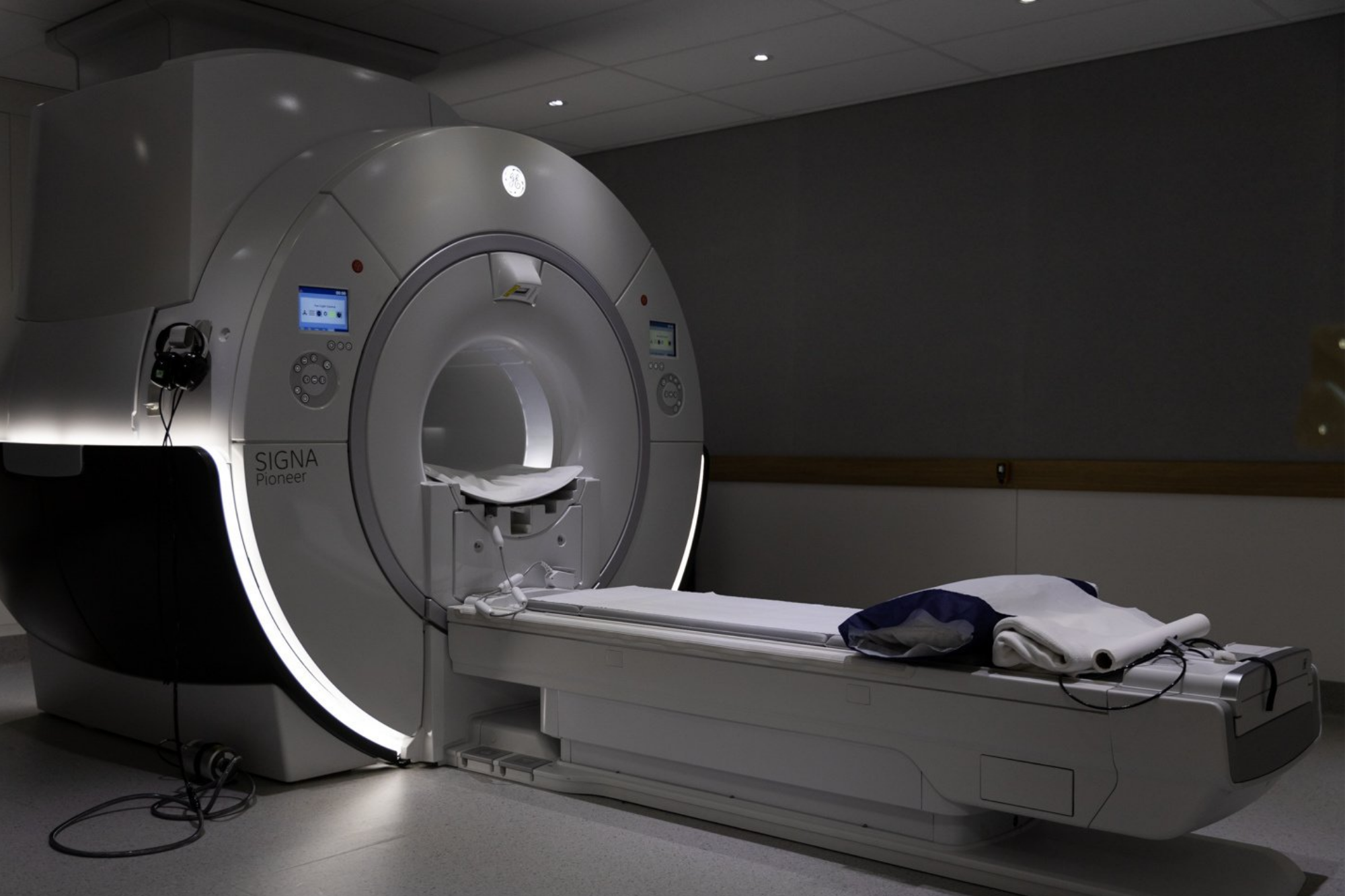
Magnetic Resonance Imaging (MRI)
Book AppointmentWhat is Magnetic Resonance Imaging (MRI)?
MRI stands for Magnetic Resonance Imaging. It is a medical imaging technique that uses a strong magnetic field and radio waves to generate detailed images of the internal structures of the body. Unlike X-rays or CT scans, MRI does not use ionizing radiation.
When a patient is inside the MRI machine, the hydrogen atoms in the body align with the magnetic field. Radiofrequency pulses are then applied, causing the aligned hydrogen atoms to produce signals. The signals are detected by a receiver in the MRI machine, and a computer processes this information to create detailed cross-sectional images of the body.
MRI is particularly useful for imaging soft tissues, such as the brain, spinal cord, muscles and joints. It provides highly detailed images, allowing healthcare professionals to visualise structures and abnormalities with great clarity. MRI is commonly used for diagnosing a variety of conditions, including neurological disorders, joint injuries, tumours, and vascular abnormalities.
It's important to note that some patients may not be suitable candidates for MRI, such as those with certain types of metal implants or devices. Additionally, patients need to remain still during the procedure to obtain clear images, so sedation may be necessary for individuals who struggle with claustrophobia or have difficulty staying still for an extended period.
Overall, MRI is a valuable tool in modern medicine, offering non-invasive and detailed imaging for the diagnosis and monitoring of various medical conditions.
What to expect at an MRI appointment
Upon your arrival, you will be requested to fill out comprehensive forms about your medical history. Patients who may encounter difficulty completing these forms independently should be accompanied by interpreters. Inaccuracies in form completion could potentially lead to a postponement of the MRI scan.
For the examination, the area under investigation must be positioned at the center of a cylindrical magnet. Some individuals might experience claustrophobia, but our highly experienced MRI technologists are will be there to support you. The majority of MRI systems at Radiology Tasmania are designed to be 'claustrophobic-friendly,' featuring open cylinders with adequate lighting and pleasant airflow.
Prior to the examination, our MRI technologist will ensure your comfort as you'll be required to remain still throughout the entire scan. If you experience any discomfort, it's crucial to communicate this to our staff so they can adjust your position or use additional soft padding, ensuring a pleasant and relaxing examination.
Throughout the examination, the MRI machine will produce loud, rhythmic noises. While generally not unpleasant, you'll have the option to select your preferred music genre or radio station and will be provided with headphones to enhance your overall experience. Earplugs can also be supplied for those sensitive to sound. Additionally, a squeeze ball will be provided to facilitate communication with the MRI technologist should the need arise to stop the examination.
In some instances, an intravenous contrast injection known as gadolinium may be necessary to enhance the accuracy of the examination. This paramagnetic material highlights various structures and pathologies. Patients might feel a cool sensation at the injection site and may experience a metallic taste.
What do you need to bring to your appointment?
- Your referral form - please note we accept all referral forms from all providers.
- Medicare card
- Pension or concession card
- Any prior imaging
Results
After the test is concluded, your radiologist or specialised nuclear medicine physician will carefully analyse the images and promptly dispatch a report directly to your referring doctor. Once your doctor receives the report, they will review the results and provide you with an explanation of the findings.
Patient Information Factsheets

Fees and billing
In most instances, we bulk bill to Medicare, but it is important to check with your individual practice prior to your service.
